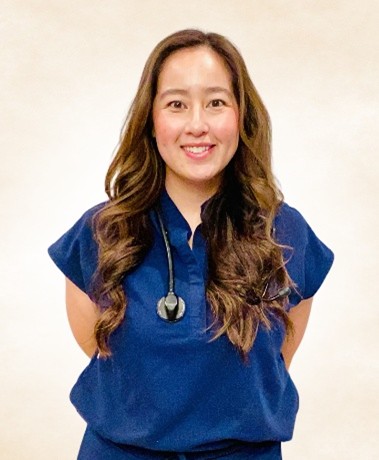
By: Xong Her, Registered Nurse, Sacramento City College Graduate

California is facing a serious nursing shortage, and our communities feel the strain every day. Fewer qualified, diverse nurses mean longer wait times, gaps in culturally competent care, and widening health disparities. One of the reasons I chose to become a nurse was to give back to the community where I was raised and provide the kind of care that often wasn’t available to my family.
As a first-generation Hmong American and the daughter of immigrant farmworkers, college felt out of reach. Not only was leaving home to attend a university financially impossible, I felt obligated to stay close to home to help my family earn money. Community college was not only the best option for me, it felt like my only option. I’m proud of my journey through community college because it enabled me to become a registered nurse. But, even with this incredible start, I hit a ceiling with just my Associate of Science in Nursing (ASN) degree. I quickly learned that I would need my Bachelor of Science in Nursing (BSN) degree if I wanted to get ahead. Like many students from lower-income backgrounds or rural communities, I knew earning my BSN degree wouldn’t be easy.
That’s why I support Assembly Bill 1400, now awaiting Governor Newsom’s signature. This bill would launch a pilot program allowing 10 California community colleges to offer a BSN degree program. It’s a cost-effective, practical solution to both our nursing shortage and the obstacles that block students like me from advancing in this high-demand field.
The need for BSN-prepared nurses is clear. In 2023, 61% of California’s 35,000 nursing job postings required a BSN. Research consistently shows that hospitals with more BSN-educated nurses have better patient outcomes. Employers increasingly seek out these candidates, not just for their clinical skills, but for their leadership potential and training in areas like public health and care coordination.
Unfortunately, BSN programs at the California State University and University of California campuses, and private colleges are financially and sometimes geographically out of reach for many students, especially those from underrepresented communities. For place-bound students like me who need to stay close to home to help support their family, work while pursuing their degree, or care for others, there are simply too few affordable options.
AB 1400 would change that, expanding student access without costing the state any additional money or passing on added costs to California taxpayers. Community colleges already run high quality and highly respected Associate Degree in Nursing (ADN) programs with qualified faculty, clinical sites, and curriculum in place. Adding a BSN option would build on this existing infrastructure to help more students pursue advanced credentials without transferring or taking on overwhelming debt.
My own experience illustrates what’s at stake. I lived at home while attending community college, helping my parents on the farm each day before and after class. Financial aid covered most of my expenses, and the small class sizes and supportive environment made it possible to succeed. While I did eventually go back to school to earn by BSN, I had to wait several years working as a registered nurse to earn enough money and get the resources I needed to make it possible. It was a struggle that wouldn’t have been necessary had my community college been able to offer a BSN instead of just an ASN.
My story isn’t unique. Many immigrant and first-generation Asian American and Pacific Islander (AAPI) students face similar barriers. Data from the Campaign for College Opportunity shows alarmingly low completion rates among Cambodian, Hmong, and Lao students. Native Hawaiian and Pacific Islander students often contend with high student debt and low college attainment, factors that perpetuate cycles of poverty.
By offering a BSN pathway at the community college level, we can help break those cycles. The estimated total cost for a BSN at a participating pilot campus would be about $10,500. This is far less than public and private colleges and universities. Students can stay close to home as well as support and be supported by their families and communities while preparing for a good-paying, in-demand career. The passing of AB 1400 would be a game changer for my community and communities like mine where these opportunities are needed the most.
Community colleges are already a proven gateway to opportunity. Now we must expand their potential. AB 1400 is a smart, equitable policy that aligns with California’s workforce needs and educational goals. It empowers students to reach higher, without leaving their communities behind.
If signed into law, AB 1400 will help train the next generation of nurses who reflect the diversity of our state; nurses who are more likely to stay local and provide culturally competent care where it’s needed most. It’s a long-overdue step toward a more inclusive and responsive healthcare system.
Let’s give students like me a clear path to success while helping California build a stronger, healthier future for all.
 Crossings TV Asian Television – Home to Asian Americans
Crossings TV Asian Television – Home to Asian Americans